Tag Archives carbon credits
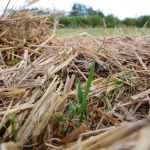
Farmer happy with carbon accreditation system
Fingerhut Farms in northern Alberta has worked alongside Carbon Asset Solutions from Australia to implement changes

American company takes deep dive into root research
Scientists plan to use gene editing to decrease drought risk, increase carbon sequestration by making plant roots bigger
Glacier FarmMedia – An American company is gene editing roots to make them grow larger so plants can better tolerate drought and sequester more carbon. Cquesta chief executive officer Michael Ott told the Agri Tech Venture Forum that half the human impact on carbon released to the atmosphere can be accounted for if nature can […] Read more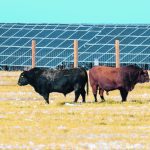
Cattle sector awaits details on methane plan
Early thinking is that federal incentives to help producers reduce cattle emissions could fit with the industry’s targets
MEDICINE HAT — Canada’s draft policy that would provide financial incentives to livestock producers to reduce methane from cattle aligns with the beef sector’s target to see those emissions reduced by a third by 2030. But how well the federal government’s proposals will merge with the sector’s efforts, which have already resulted in Canadian beef […] Read more
Company offers pathway to carbon credit revenue

GHG debate needs debit-credit balance

Recalling the short, unhappy history of carbon sequestration

Grasslands called key to carbon future
A researcher says grasslands must be retained now if landowners are to take advantage of carbon markets in the future
University of Alberta researcher Ed Bork said he believed landowners will eventually be paid for carbon storage and other environmental benefits that grasslands and pastures provide.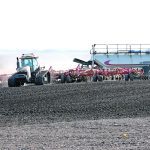
Crop yields can be increased sustainably: Nutrien
The chief executive officer of the world’s largest ag retailer says sustainability and higher yields are not mutually exclusive
OTTAWA — The head of the world’s largest agricultural retailer said farmers can meet the challenge of providing enough food for the world’s growing population and do it sustainably. But they can’t do it alone. Ken Seitz, chief executive officer of Nutrien, said sustainability and increasing yields are not mutually exclusive. “We need to dispel […] Read more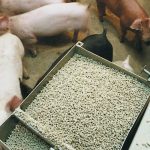
Agriculture carbon markets likely to look inward
Food companies are replacing carbon offsets with insets, in which they make investments in their own supply chains
Canada’s farmers should be prepared for a shift in how the carbon market operates. Denis Tremorin, Pulse Canada director of sustainability, said food companies are moving to insets from offsets as they look at reaching their net zero promises. He told a Saskatchewan Pulse Growers seminar that companies initially purchased offsets to deal with emissions […] Read more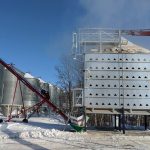
Solar sector in Alberta questions carbon tax credit for ag
The industry argues Ottawa should have instead used the money to fund programs to promote greenhouse gas reduction
The executive director of advocacy group Solar Alberta is crying foul over the federal government’s move to refund the province’s consumer carbon taxes in the form of a tax refund rather than programs to promote greenhouse gas reductions in the industry. Alberta pulled out of the federal carbon tax program that allowed provinces to develop […] Read more


